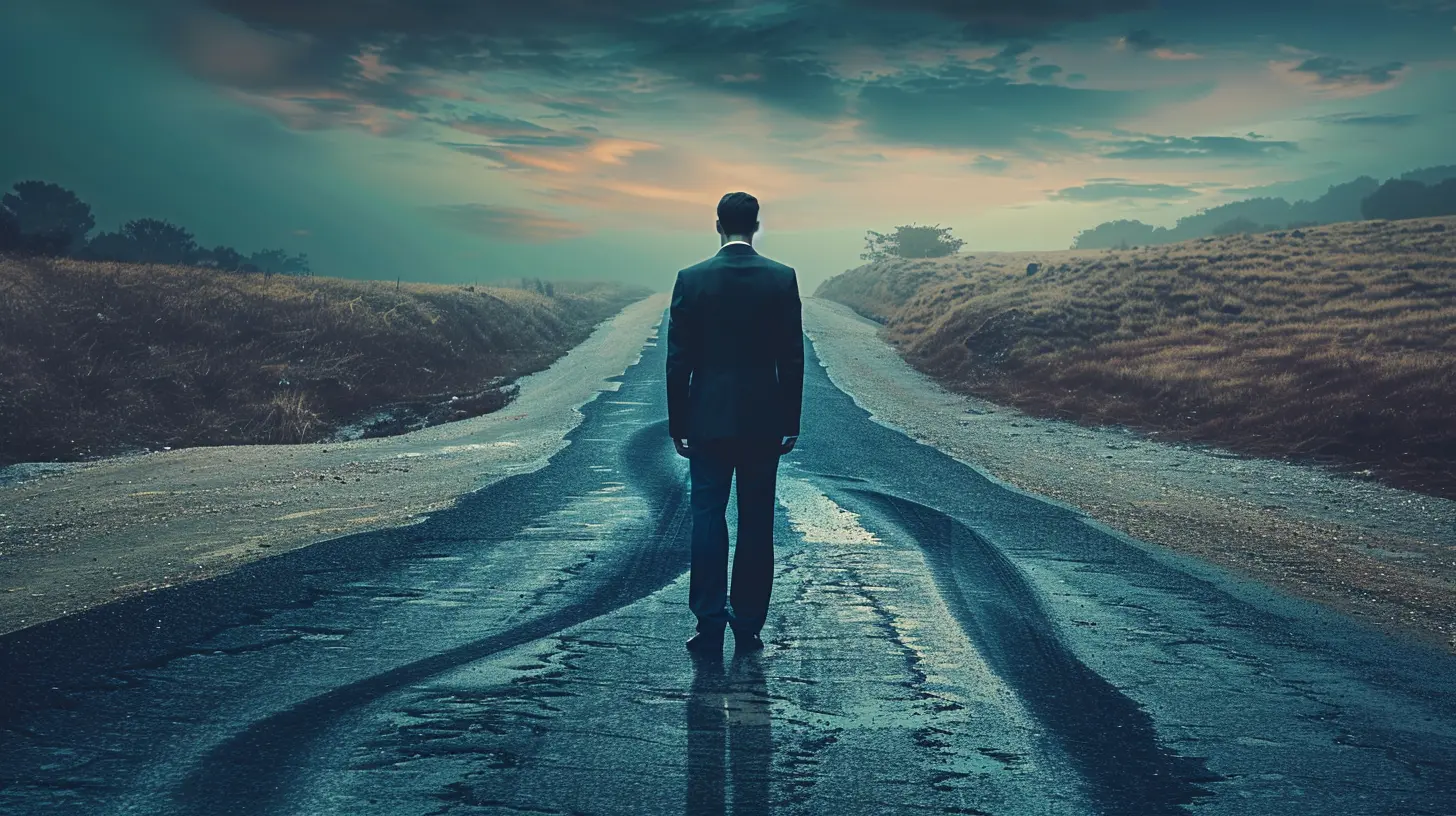The Role of Uncertainty in Decision-Making
26 April 2025
Have you ever found yourself stuck between two options, unable to decide because you’re unsure of the outcome? If so, you’re not alone. Uncertainty is a part of life, and it plays a huge role in how we make decisions every day.
From choosing a career path to picking what to eat for dinner, uncertainty seeps into every aspect of decision-making. But why does uncertainty make decisions so difficult? And how can we handle it better? Let’s dive deep into the psychology behind uncertainty and how it shapes the choices we make.

Why Uncertainty Influences Decision-Making
Uncertainty is simply the lack of complete knowledge about a situation. When we don’t know all the facts or can’t predict the future, making decisions becomes a challenge.Our brains crave certainty. We prefer clear, predictable outcomes because they provide a sense of security. When faced with uncertainty, we experience discomfort, stress, or even fear. This can lead us to hesitate, overanalyze, or avoid making decisions altogether.
But here’s the catch—uncertainty isn’t always bad. In fact, it’s a natural part of growth and progress. After all, if we only made choices when we were 100% certain of the outcome, we’d never take risks, try new things, or experience personal development.
The Science Behind Uncertainty and the Brain
Ever wonder why uncertainty feels so unsettling? It has a lot to do with how our brains are wired.The amygdala, a part of the brain responsible for processing emotions, detects uncertainty as a potential threat. It triggers stress responses, making us feel anxious or uneasy. This is why people often experience “paralysis by analysis” when making big decisions—the fear of the unknown can be overwhelming.
At the same time, the prefrontal cortex, responsible for logical reasoning and problem-solving, tries to weigh the pros and cons of each option. The tug-of-war between emotions and logic makes decision-making in uncertain situations particularly complex.
What Happens When We Avoid Uncertainty?
Because uncertainty can be uncomfortable, many people try to avoid it altogether. This often leads to:- Procrastination – Delaying decisions in hopes that more clarity will somehow emerge.
- Over-Reliance on Others' Opinions – Seeking excessive reassurance instead of trusting personal judgment.
- Playing It Too Safe – Making decisions that minimize risk but also limit opportunities.
While avoiding uncertainty might feel like a relief in the short term, it can hold us back from making bold choices that lead to success and fulfillment.

How Uncertainty Leads to Better Decisions
Believe it or not, uncertainty isn’t always the villain in decision-making. In fact, when handled properly, it can lead to smarter, more informed choices. Here’s how:1. It Encourages Critical Thinking
When certainty is lacking, we are forced to analyze situations more carefully. Instead of rushing into a decision, we take time to gather information, weigh options, and consider potential outcomes.2. It Promotes Adaptability
Life is unpredictable. Learning to make decisions despite uncertainty strengthens our ability to adapt and be flexible in changing situations. People who embrace uncertainty are often more resilient in the face of challenges.3. It Sparks Creativity and Innovation
Think about some of the greatest inventions or breakthroughs in history. They didn’t come from people playing it safe; they came from individuals willing to take risks despite uncertainty. The unknown can be a space for creativity and game-changing ideas.4. It Reduces Overconfidence Bias
When we assume we have all the answers, we risk making reckless decisions. A little uncertainty forces us to stay humble, seek more information, and double-check our assumptions, leading to more balanced decision-making.
Strategies for Managing Uncertainty in Decision-Making
We can’t eliminate uncertainty, but we can learn to manage it more effectively. Here are some practical strategies for making decisions when outcomes are unclear:1. Focus on What You Can Control
Instead of stressing over things beyond your control, concentrate on the factors you can influence. This helps reduce anxiety and makes decision-making feel more manageable.2. Gather Enough (But Not Too Much) Information
Research is important—but don’t fall into the trap of analysis paralysis. Set a reasonable limit for how much information you need before making a decision, and then take action.3. Accept That Perfection Doesn’t Exist
No decision is 100% perfect. Accepting that mistakes and uncertainties are part of life will help you make choices with confidence.4. Use a Decision-Making Framework
Tools like the Pros and Cons List, SWOT Analysis, or 6 Thinking Hats technique can help structure your thinking and make uncertainty feel less overwhelming.5. Trust Your Intuition
Sometimes, your gut feeling knows best. If you’ve gathered reasonable information and still feel drawn to a certain choice, trust yourself to follow through.6. Take Action and Be Willing to Adjust
The worst decision is often no decision at all. Instead of waiting for certainty, make a choice, take action, and adjust as needed. Most decisions aren’t permanent and can be tweaked along the way.
Real-Life Examples of Decision-Making Under Uncertainty
History is full of stories where great leaders, entrepreneurs, and innovators made life-changing decisions despite uncertainty.- Steve Jobs and Apple – When Steve Jobs launched the first iPhone, he had no certainty it would succeed. But he took the leap, and it transformed technology forever.
- J.K. Rowling and Harry Potter – Rowling faced multiple rejections before a publisher finally accepted her manuscript. She had no guarantee of success, but she believed in her work and pushed forward.
- Elon Musk and SpaceX – Musk invested millions into SpaceX despite multiple failed rocket launches. If he had waited for certainty, he might have never revolutionized space travel.
These examples prove that uncertainty isn’t something to fear—it’s an opportunity for growth, learning, and breakthroughs.
Final Thoughts
Uncertainty is an unavoidable part of decision-making, but it doesn’t have to hold you back. Instead of fearing the unknown, try to see it as an opportunity for learning and growth.By embracing uncertainty, using strategic decision-making techniques, and trusting yourself, you can make better choices—even when the future isn’t clear.
So the next time you’re faced with an uncertain decision, ask yourself: What’s the worst that can happen? More often than not, the fear of uncertainty is worse than the outcome itself.
Embrace the unknown, and who knows? Your next uncertain decision might just lead to something incredible.
all images in this post were generated using AI tools
Category:
Decision MakingAuthor:

Matilda Whitley
Discussion
rate this article
4 comments
Kyle Kane
Thank you for this insightful article! I appreciate how you highlighted the nuanced impact of uncertainty on our decision-making processes. Understanding these dynamics can empower individuals to navigate their choices more effectively. I look forward to exploring further implications in future discussions!
May 17, 2025 at 3:35 AM

Matilda Whitley
Thank you for your thoughtful comment! I'm glad you found the article insightful and relevant to decision-making. I look forward to further discussions on this important topic!
Onyx Clayton
Uncertainty can be both a barrier and a catalyst in decision-making; embracing it fosters resilience, encourages exploration, and ultimately leads to more informed choices.
May 4, 2025 at 2:57 AM

Matilda Whitley
Thank you for your insightful comment! Embracing uncertainty indeed enhances resilience and promotes thoughtful exploration in decision-making.
Troy Hodge
Embracing uncertainty makes decision-making an adventure—sometimes the best choices come from the unknown!
April 30, 2025 at 4:51 PM

Matilda Whitley
Thank you! Embracing uncertainty indeed opens us up to new possibilities and can lead to unexpectedly rewarding outcomes.
Catherine McGhee
This article beautifully highlights how uncertainty shapes our choices. Embracing the unknown can lead to growth and resilience. Thank you for shedding light on such an essential topic!
April 28, 2025 at 4:06 PM

Matilda Whitley
Thank you for your thoughtful comment! I'm glad you found the article insightful. Embracing uncertainty truly can lead to personal growth.



